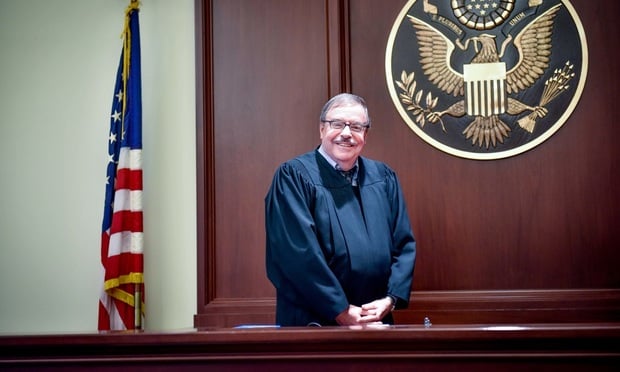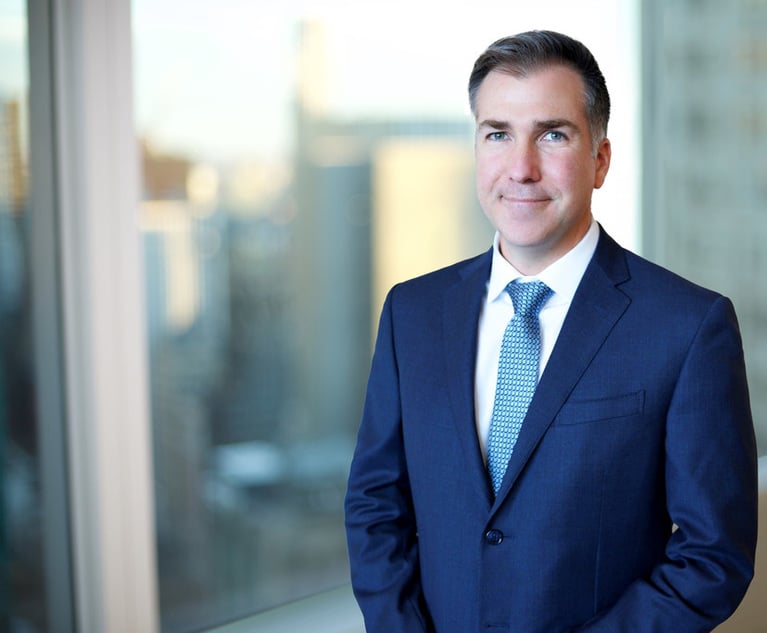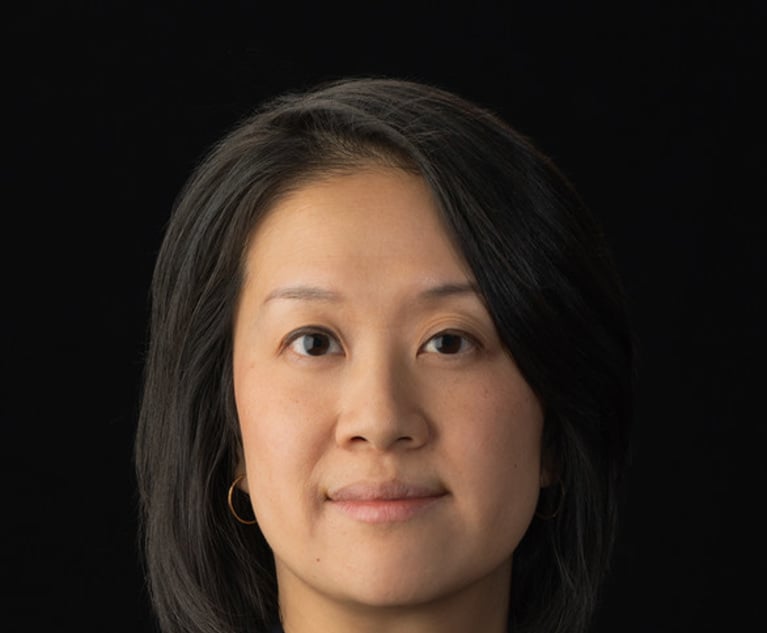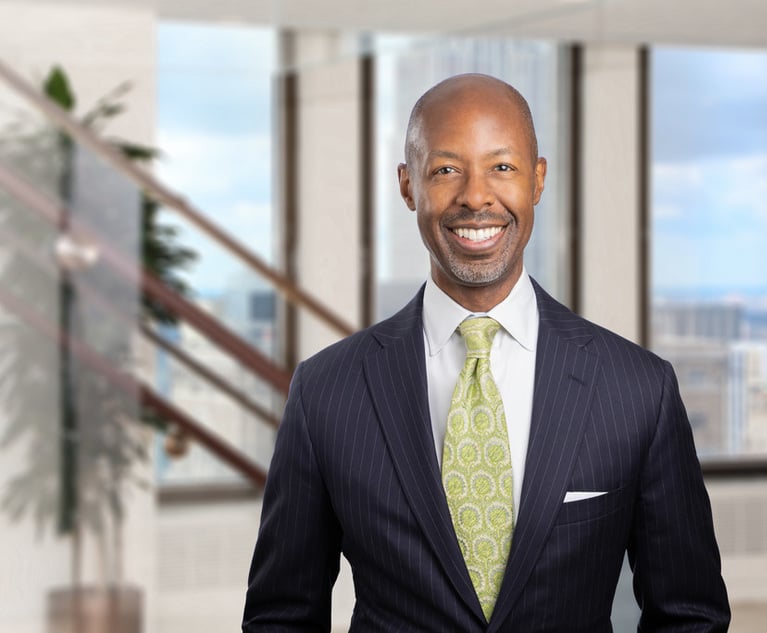Judge Andrew J. Peck, 1 of E-Discovery's Most Influential Figures, Retires From the Bench
After over two decades as a magistrate judge for the Southern District of New York, Peck will retire and join DLA Piper.
March 05, 2018 at 07:00 AM
10 minute read
 U.S. Magistrate Judge Andrew Peck of the Southern District of New York. Photo Credit: David Handschuh/ALM)
U.S. Magistrate Judge Andrew Peck of the Southern District of New York. Photo Credit: David Handschuh/ALM) Today's younger lawyers may take e-discovery for granted. To them, e-discovery is, well, discovery.
And this is the way that U.S. Magistrate Judge Andrew J. Peck of the Southern District of New York feels it should be. The author of e-discovery's most influential opinions as well as a frequent speaker on the topic, Peck is recognized internationally for bringing e-discovery competency to the attention of both the judiciary and bar. On Feb. 27, Peck announced his departure from the bench, a date chosen to coincide with that in 1995, when he was sworn in. “I felt the symmetry of leaving on the same day appealed to my peculiar sense of humor,” he said.
At age 65, Peck joins DLA Piper in what he claims will “probably be the end of my career,” a period he estimates could range anywhere from five to 25 years, noting that his 23 years as a judge “sure went by quickly.” As senior counsel, he will serve the firm in more of an advisory capacity, in which he will also continue speaking on “the e-discovery circuit.” Yet his post-bench career doesn't stop there: A proponent of “keeping one's mind active” in the interest of “longevity,” Peck has also been nominated to the influential Sedona Conference Working Group 1 Steering Committee, which develops guidance on e-discovery in litigation, investigations and dispute resolution.
Now, after writing at least 1,500 decisions and working on cases covering everything from immigration to employment law, Peck, sitting in chambers recently emptied of decades' worth of books, documents and court sketchings, said he will “absolutely” miss being a judge, but is quick to point out that it isn't “the 'power'” or “putting the robe on.” Rather, “I'm going to miss my colleagues, going to miss the substantive work that we do here.”
E-Discovery as 'Black Letter Law'
In the U.S. District Court for the Southern District of New York and beyond, Peck is widely regarded as what U.S. district judge for the western district of Texas and recognized e-discovery expert Xavier Rodriguez calls “the A team” of judges educating the bar and judiciary on e-discovery, many of which have retired and are going to be “hard to replace.”
Among this first wave is retired SDNY District Judge Shira Scheindlin, who considers Peck not only “one of the original leaders” on e-discovery, but perhaps the first judge to tackle the subject head on. “He's been a giant in the field of e-discovery. He was in the field first and last,” she said, noting that he issued “one of his earliest opinions before any of us were in [the field].”
That opinion was in 1995's Anti-Monopoly v. Hasbro, in which Peck wrote “it is black letter law that computerized data is discoverable if relevant.” This opinion, said Kenneth Withers, deputy executive director at The Sedona Conference, marks Peck as “the first judge to actually identify e-discovery as a unique phenomenon.”
“Quite strangely at the time, he said, 'Well, the discovery of computer evidence is black letter law. It was not, except in his courtroom, but I'm really glad he said it, because at that time there were a lot of people who just simply were in denial. And that was the first of his many wake-up calls,” Withers said. “He brought it to people's attention in a way it had not been before, because here you have a federal magistrate judge in one of the most high-profile districts in the country who is saying essentially, 'I see this all the time, and I think attorneys have to pay attention to it.'”
It wasn't until 2015, in which the Federal Rules of Civil Procedure were amended to overhaul the scope of discovery in civil litigation in federal court, that e-discovery was codified into proceedings. But several years prior to this marked the first of Peck's opinions for which he will be most remembered.
TAR Trilogy
In fact, Peck's venturing into his legacy rulings was somewhat by chance. In summer 2011, he was asked to give the keynote at the first Carmel Valley eDiscovery retreat, where, upon asking the host what they wanted him to talk about, was told “search.” From then until the conference, Peck researched the literature available to learn about predictive coding, a process that, relying on keyword searching, employs automation to eliminate potentially irrelevant documents from an e-discovery review set.
While the technology was available, it wasn't widely used. At the urging of “several well-respected people” in attendance at Carmel, Peck wrote the article “Search, Forward” that October. “I was the first judge to do anything with it,” he said of predictive coding. “To the extent that lawyers have been saying they're waiting for judicial approval, well, this is informal judicial approval … And then literally, two months after that article, Da Silva Moore walked into my courtroom, and I said to them, 'You must have thought you died and went to heaven when you were randomly assigned to me with a TAR [technology assisted review] issue and I know something about it.”
The first of what would become known as Peck's “TAR Trilogy,” Monique Da Silva Moore, et. al. v. Publicis Groupe & MSL Group was an employment class action lawsuit in which Peck provided the first judicial decision approving the use of TAR. “Prior to Da Silva Moore, I don't think predictive coding and TAR really were all that well-known outside that limited mega-volume cases,” Rodriguez said. “Outside that little world, I don't think anybody really knew much about TAR or predictive coding.”
Retired SDNY federal Magistrate Judge Frank Maas, also a leader in e-discovery, noted because of “the predictive coding decision principally,” as well as later discussions, Peck “probably has had more of an effect on foreign jurisdictions” than most magistrate judges. One case where this has proven true is Pyrrho Investments v. MWB Property out of the United Kingdom, where Peck's opinion was cited in predicting the use of TAR. Likewise, TAR has been approved in Australia.
The next case in this group was Rio Tinto v. Vale S.A., et al, where Peck issued an order approving the protocols agreed upon by the parties for predictive coding use. “He may [have] gone a little out on a limb when he wrote that it was black letter law that if a producing party wanted to use TAR, courts would allow it,” said David Horrigan, discovery counsel at Relativity. “In 2015, most judges didn't even know what TAR was, and I think there were probably at least a few traditionalists.”
TAR would resurface for Peck in 2016 in Hyles v. City of New York et. al, an employment discrimination case against New York City, in which a series of discovery disputes arose. Here, plaintiff requested that the responding party be forced to use TAR in discovery. In his order, Peck wrote, “The short answer is a decisive 'NO'.”
In terms of how Peck's decisions have impacted attorneys' approach to discovery, Patrick Oot, co-chair of Shook, Hardy & Bacon's data and discovery strategies practice group, said in an email that while the judge's opinions have suggested the use of proportionality tools like predictive coding [Da Silva Moore], the opinions have stopped short of an overall mandate or cram down from the bench [Hyles].”
Beyond the Blockbuster
While Peck's tenure on the bench will be remembered for e-discovery—Scheindlin referred to Da Silva Moore as his “big blockbuster case”—his career has certainly touched upon other arenas of the law. Among them are habeas corpus opinions that he's proud of, including a writ of habeas corpus granted in a case that eventually led to a Second Circuit ruling that immigrants could not be held in detention while awaiting deportation hearings for over six months. One he found “particularly interesting as an Upper West Sider” was a securities class action against the grocery chain Fairway Market. Perhaps the most notorious case he was involved in was that of the “Somali Pirate,” in which, at a hearing, Peck determined him to be over 18 years old and therefore fit to be tried as an adult.
“One of the things I love about this job is there's obviously certain areas of the law we [judges] get to see a lot,” Peck said. “It's intellectually stimulating, because first you're learning something new, and then you're feeling comfortable you know it, and there will always be a new wrinkle. So you've got areas where you feel incredibly comfortable. Then, the luck of the wheel, something else will get assigned.”
Peck, who likes to “be involved and know what's going on, involved in decision-making,” has over the years been a member of different SDNY internal committees, such as the Pro Se Committee, the Mediation Committee and the Clerk's Office Committee. Among the SDNY, he had been known for operating “a self-proclaimed rocket docket, which is to say I wanted the lawyers to move their case appropriately, which they would say is too quickly.” Recalling being interviewed by the court of committee judges for his application to be a judge, Peck recalled speaking about discovery issues in particular, “One of judges asked, 'Is it more important to rule quickly or correctly?' And I not so humbly said, 'I like to think I'd be able to do both.'”
Peck will also be remembered for what's been coined his 'wake-up calls' for the bar in e-discovery. Among them were a 2009 opinion in which he noted that the need for more care and cooperation in designating keywords for production, and 2017's Fischer v. Forrest, about which Peck said, “I finally got fed up with the lawyers who were using the usual boilerplate objections” to discovery requests.
Peck officially begins his role at DLA Piper on April 4, a date carefully selected around New York Yankees opening day. A self-described “Sherlock Holmes fanatic,” he is a member of the Baker Street Irregulars, a group for international Sherlock Holmes “aficionados,” and plans to continue his involvement. He adds that he's weaved Holmes references into at least two of his opinions.
As for the next generation of judges, he's confident that they, having grown up with technology, will be further ahead in discovery competency. “Newer judges will have practiced e-discovery before getting on the bench and will bring that experience with them. You didn't have e-discovery, you barely had email, in 1995, when I got on the court.”
To this next generation, he advises to “rule from the bench wherever possible,” rely on your staff in a way that “best allows them to help you,” and to use prior opinions.
“The hardest job for a new judge is when they're starting, because they don't have anything in the can. But once one has written the summary judgment standard, other than making sure there hasn't been a new decision from the circuit or the Supremes that change things, it probably makes no sense to change that, or have a law clerk who may well be a better writer edit it, play with it and try to make it even better. It was good enough the first time, it's good enough the second through the 25th time.”
Rhys Dipshan contributed reporting to this article.
This content has been archived. It is available through our partners, LexisNexis® and Bloomberg Law.
To view this content, please continue to their sites.
Not a Lexis Subscriber?
Subscribe Now
Not a Bloomberg Law Subscriber?
Subscribe Now
NOT FOR REPRINT
© 2025 ALM Global, LLC, All Rights Reserved. Request academic re-use from www.copyright.com. All other uses, submit a request to [email protected]. For more information visit Asset & Logo Licensing.
You Might Like
View All
Attorneys ‘On the Move’: O’Melveny Hires Former NBA Vice President; MoFo Adds Venture Capital Partner
5 minute read
Attorneys ‘On the ‘Move: Morrison Cohen Expands White Collar Practice; O’Melveny Brings Back Corporate Finance Partner
6 minute read
Attorneys 'On the Move': Structured Finance Attorney Joins Hunton Andrews Kurth; Foley Adds IP Partner
5 minute read
Attorneys 'On the Move': McGuireWoods Hires Digital Healthcare Lawyer; Duane Morris Adds Corporate Partner
4 minute readTrending Stories
- 1Understanding the HEMS Standard in Trusts
- 2Mergers Are About People, Not Paperwork: Here’s Why
- 3Wachtell Partner Leaves to Chair Latham's Liability Management Practice
- 4Morris Nichols Partners to Be Involved With PLI Program
- 5How I Made Practice Group Chair: 'Cultivating a Culture of Mutual Trust Is Essential,' Says Gina Piazza of Tarter Krinsky & Drogin
Who Got The Work
J. Brugh Lower of Gibbons has entered an appearance for industrial equipment supplier Devco Corporation in a pending trademark infringement lawsuit. The suit, accusing the defendant of selling knock-off Graco products, was filed Dec. 18 in New Jersey District Court by Rivkin Radler on behalf of Graco Inc. and Graco Minnesota. The case, assigned to U.S. District Judge Zahid N. Quraishi, is 3:24-cv-11294, Graco Inc. et al v. Devco Corporation.
Who Got The Work
Rebecca Maller-Stein and Kent A. Yalowitz of Arnold & Porter Kaye Scholer have entered their appearances for Hanaco Venture Capital and its executives, Lior Prosor and David Frankel, in a pending securities lawsuit. The action, filed on Dec. 24 in New York Southern District Court by Zell, Aron & Co. on behalf of Goldeneye Advisors, accuses the defendants of negligently and fraudulently managing the plaintiff's $1 million investment. The case, assigned to U.S. District Judge Vernon S. Broderick, is 1:24-cv-09918, Goldeneye Advisors, LLC v. Hanaco Venture Capital, Ltd. et al.
Who Got The Work
Attorneys from A&O Shearman has stepped in as defense counsel for Toronto-Dominion Bank and other defendants in a pending securities class action. The suit, filed Dec. 11 in New York Southern District Court by Bleichmar Fonti & Auld, accuses the defendants of concealing the bank's 'pervasive' deficiencies in regards to its compliance with the Bank Secrecy Act and the quality of its anti-money laundering controls. The case, assigned to U.S. District Judge Arun Subramanian, is 1:24-cv-09445, Gonzalez v. The Toronto-Dominion Bank et al.
Who Got The Work
Crown Castle International, a Pennsylvania company providing shared communications infrastructure, has turned to Luke D. Wolf of Gordon Rees Scully Mansukhani to fend off a pending breach-of-contract lawsuit. The court action, filed Nov. 25 in Michigan Eastern District Court by Hooper Hathaway PC on behalf of The Town Residences LLC, accuses Crown Castle of failing to transfer approximately $30,000 in utility payments from T-Mobile in breach of a roof-top lease and assignment agreement. The case, assigned to U.S. District Judge Susan K. Declercq, is 2:24-cv-13131, The Town Residences LLC v. T-Mobile US, Inc. et al.
Who Got The Work
Wilfred P. Coronato and Daniel M. Schwartz of McCarter & English have stepped in as defense counsel to Electrolux Home Products Inc. in a pending product liability lawsuit. The court action, filed Nov. 26 in New York Eastern District Court by Poulos Lopiccolo PC and Nagel Rice LLP on behalf of David Stern, alleges that the defendant's refrigerators’ drawers and shelving repeatedly break and fall apart within months after purchase. The case, assigned to U.S. District Judge Joan M. Azrack, is 2:24-cv-08204, Stern v. Electrolux Home Products, Inc.
Featured Firms
Law Offices of Gary Martin Hays & Associates, P.C.
(470) 294-1674
Law Offices of Mark E. Salomone
(857) 444-6468
Smith & Hassler
(713) 739-1250






